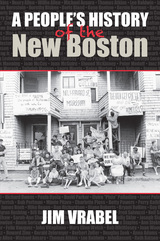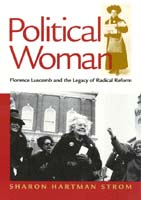4 start with P start with P

Credit for the city's turnaround since that time is often given to a select group of people, all of them men, all of them white, and most of them well off. In fact, a large group of community activists, many of them women, people of color, and not very well off, were also responsible for creating the Boston so many enjoy today. This book provides a grassroots perspective on the tumultuous 1960s and 1970s, when residents of the city's neighborhoods engaged in an era of activism and protest unprecedented in Boston since the American Revolution.
Using interviews with many of those activists, contemporary news accounts, and historical sources, Jim Vrabel describes the demonstrations, sit-ins, picket lines, boycotts, and contentious negotiations through which residents exerted their influence on the city that was being rebuilt around them. He includes case histories of the fights against urban renewal, highway construction, and airport expansion; for civil rights, school desegregation, and welfare reform; and over Vietnam and busing. He also profiles a diverse group of activists from all over the city, including Ruth Batson, Anna DeFronzo, Moe Gillen, Mel King, Henry Lee, and Paula Oyola. Vrabel tallies the wins and losses of these neighborhood Davids as they took on the Goliaths of the time, including Boston's mayors. He shows how much of the legacy of that activism remains in Boston today.

Politcal Women counters the traditional narratives that place men at the center of political thinking and history. Showing how three generations of Luscomb's family had set the stage for her activism, this biography presents her story against the backdrop of Boston's politics and larger struggles for social justice. Luscomb participated in every significant social reform movement of her time -- from securing women's right to vote and supporting trade unionism to advocating an end to the war in Vietnam. Luscomb also ran for public office; she was narrowly defeated when she ran for Boston's city council in 1922. Although unsuccessful as a third-party candidate for Congress (in 1936 and 1950) and for Governor of Massachusetts (in 1952), she was one of the few women of her time to seek office. Independent, athletic, and spirited, she apparently never thought that traditional gender prescriptions applied to her. A practicing architect before the First World War, an exuberant hiker all her life, and a member in collective-living arrangements, Luscomb enjoyed a life of rich experiences and sustaining relationships.
In Florence Luscomb's biography, Sharon Hartman Strom suggests that although women were excluded from the activities and sites associated with conventional politics until recently, they did political work that gave purpose to their lives and affected political thinking in their communities, states, and ultimately the nation.

Two hundred and thirty-four striking photographs of the port of Boston combine with interpretive commentary to recapture the flavor, buoyancy, and excitement of the city’s years as one of the two or three great American ports. After the Civil War Boston underwent a radical and successful transformation from a declining mercantile home port to an important and competitive modern seaport. At the same time the transition from sail to steam was taking place. Photographic studies of deep water sail and steam vessels, naval ships, fishing boats, catboats, tugs, schooners, and sloops, and of the picturesque wharves—all create a kaleidoscopic visual history of these years of change.
The volume offers, as well, some of the most distinguished early work in photography, including the widest selection ever published of photographs by pioneer marine photographer Nathaniel Stebbins.

In this book, based almost exclusively on original source material, Dr. Blake takes a detailed look at the public health history of the town of Boston. Historically, the author tells us, public health may be viewed as the science and art of preventing disease and promoting health through organized community activity. A significant part of this study is the insight it offers into the early attitudes toward disease and death as well as other basic political, social, and economic questions.
Dr. Blake outlines the development of public health practice from occasional emergency measures to a continuing program for the prevention and control of certain epidemic diseases. The introduction and increasing use of smallpox inoculation and later of vaccination are described and their importance evaluated. The book also discusses the further developments in the 1790s and the following two decades that resulted from a series of yellow-fever epidemics in northern seaports, including the establishment of a board of health and its efforts to prevent recurrence of this disease. The prevention of other endemic infectious diseases, though far more important in their effect on the community’s health, was largely neglected. Nevertheless, the principles of notification, isolation, and quarantine had been established and the need for governmental activity to protect the public health, for special public health officials, and for expenditure of tax money for public health purposes had been recognized.
This study, restricted in time to the period before Boston became a city (1630–1822), deals with the early years of the public health movement, a period that has been largely neglected. In comparing Boston’s experience with that of other colonies and England, Dr. Blake presents the European background in both the theory and practice of epidemiology and public health. The colonies themselves, whose differences caused many contemporaries to despair of their ever becoming a single nation, were yet bound by an essential homogeneity. “By and large they had the same language, the same religion, the same inheritance of British social and political ideals. And by and large they had the same diseases. Thus the history of public health in Boston becomes significant for the whole American experience.”
READERS
Browse our collection.
PUBLISHERS
See BiblioVault's publisher services.
STUDENT SERVICES
Files for college accessibility offices.
UChicago Accessibility Resources
home | accessibility | search | about | contact us
BiblioVault ® 2001 - 2024
The University of Chicago Press









